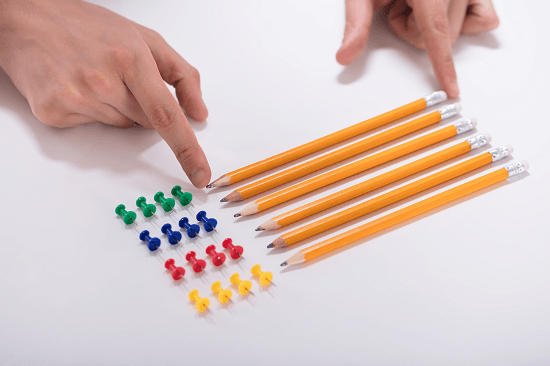Obsessive-Compulsive Disorder (OCD) is a mental health condition that affects millions of people around the world, regardless of age or background. The symptoms can be debilitating, causing individuals to experience intrusive thoughts and engage in repetitive behaviors in an attempt to alleviate the anxiety these thoughts bring. While OCD may feel overwhelming, it is crucial to remember that effective treatment options are available, offering hope and the prospect of breaking free from its grip.
For teenagers struggling with OCD, finding the right treatment is essential in reclaiming their lives and achieving overall well-being. Teen rehab programs specifically designed to address OCD offer a supportive and structured environment for adolescents to navigate through their challenges. These programs not only provide evidence-based therapeutic interventions but also foster a sense of belonging and community among teens facing similar battles. With the right guidance, young individuals can start building the necessary skills and resilience to manage their OCD symptoms effectively.
When it comes to addiction recovery for teenagers with OCD, it’s important to recognize that addressing both conditions concurrently is crucial for long-term success. Adolescence is a vulnerable period, and it is not uncommon for individuals with OCD to turn to substances as a coping mechanism. By integrating addiction treatment alongside OCD therapy, teen rehab programs can tackle the root causes of both conditions simultaneously, helping adolescents pave the way towards a healthier and more fulfilling life.
In the following sections, we will explore the various treatment options available for teenagers struggling with OCD. From cognitive-behavioral therapy to medication and holistic approaches, we will delve into the power of comprehensive treatment plans in breaking free from the constraints of OCD. By shedding light on the transformative potential of these interventions, we hope to inspire teenagers, their families, and their support networks to take the first steps towards healing and recovery.
Understanding OCD: Causes and Symptoms
Obsessive-Compulsive Disorder (OCD) is a mental health condition that affects people of all ages, including teenagers. It is characterized by the presence of obsessive thoughts that result in repetitive behaviors or rituals. The exact causes of OCD are still not fully understood, but experts believe that a combination of genetic, environmental, and neurological factors may contribute to its development.
In teenagers, OCD symptoms often manifest in a variety of ways. Common symptoms include persistent and intrusive thoughts or images that create feelings of anxiety or distress. These thoughts are often irrational or unrealistic but can be difficult to ignore or control. To alleviate the anxiety caused by these obsessions, individuals with OCD may engage in compulsive behaviors or rituals. These repetitive actions are performed to reduce the anxiety associated with the obsessions, but they provide only temporary relief.
OCD symptoms can significantly interfere with a teenager’s daily life, affecting their relationships, academic performance, and overall well-being. Some common obsessions and compulsions observed in teenagers include excessive handwashing, arranging objects in a particular order, and constantly seeking reassurance from others. It is important to note that the severity and specific symptoms of OCD can vary greatly from person to person.
Rehab for teens
By understanding the causes and symptoms of OCD, we can begin to recognize the signs in teenagers and take appropriate steps towards seeking effective treatment.

Effective OCD Treatment Approaches
OCD, or Obsessive-Compulsive Disorder, is a condition that can greatly impact the lives of teenagers. Fortunately, there are effective treatment approaches available that can help individuals break free from its grip and regain control over their lives.
One such approach is cognitive-behavioral therapy (CBT). This therapy focuses on identifying and challenging the unhealthy thought patterns and behaviors that contribute to OCD. By working with a trained therapist, teenagers can learn new ways of thinking and reacting to their obsessions and compulsions. CBT can be a powerful tool in helping them manage their symptoms and reduce the impact of OCD on their daily lives.
Another effective treatment approach for OCD is exposure and response prevention (ERP) therapy. This type of therapy involves gradually exposing teenagers to their obsessive thoughts or situations that trigger their compulsive behaviors, while actively resisting the urge to engage in those behaviors. Through repeated exposure to these triggers and resisting the corresponding rituals or compulsions, individuals can learn that their fears are unfounded and develop healthier coping mechanisms.
In some cases, medication can also be an important part of OCD treatment for teenagers. Selective serotonin reuptake inhibitors (SSRIs) are commonly prescribed to help regulate brain chemistry and reduce the severity of OCD symptoms. It is important for teenagers to work closely with their healthcare providers to find the right medication and dosage that works best for them.
Overall, finding the right combination of therapy, medication, and support is crucial in effectively treating OCD in teenagers. Through a comprehensive and individualized approach, individuals can embark on a journey of recovery, break free from the constraints of OCD, and experience a renewed sense of control and freedom in their lives.
Empowering Teenagers in Addiction Recovery
In the journey of addiction recovery for teenagers, empowerment plays a crucial role. It is essential for young individuals to regain control over their lives and develop a sense of agency in their recovery process. By offering a safe and supportive environment, teen rehab centers pave the way for these adolescents to reclaim their strength and overcome the challenges they face.
At rehab centers tailored specifically for teenagers, a comprehensive approach is taken to address their unique needs. Treatment programs are designed to empower these young individuals, providing them with the necessary tools and skills to navigate through the complexities of addiction. Through various therapeutic interventions, teens are encouraged to take ownership of their recovery, fostering a sense of confidence and resilience.
Recovery from addiction is not an easy journey, but with the right support and guidance, teenagers can break free from the chains of dependency. By empowering them to make healthier choices and develop positive coping mechanisms, rehab for teens serves as a catalyst for long-term recovery and a brighter future. The dedicated professionals at these centers play a vital role in instilling a sense of self-worth and belief in these teenagers, helping them find their inner strength to overcome the challenges ahead.
Empowering teenagers in addiction recovery goes beyond the confines of the rehab center. It involves creating a network of ongoing support, both within the facility and in their day-to-day lives. By fostering connections with other individuals who have experienced similar challenges, teens can form healthy relationships and build a strong support system. This network of support becomes an essential pillar in their journey toward lasting recovery, providing encouragement and understanding when faced with obstacles.
In conclusion, empowering teenagers in addiction recovery is a critical aspect of their overall healing process. Through a comprehensive and supportive approach, rehab centers tailored for teens offer the necessary tools, guidance, and connections to help these individuals break free from addiction. By restoring their sense of agency and self-worth, we empower teenagers to take control of their lives and unlock their true potential for a brighter future.



